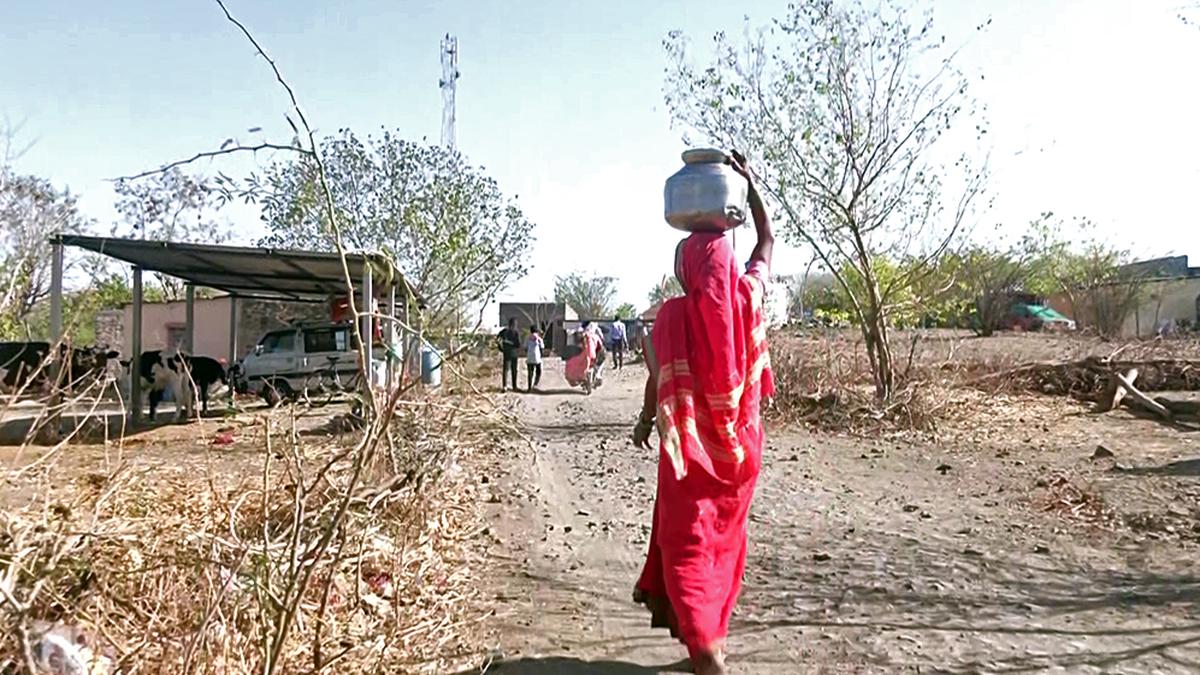
Securing water in a time of climate change through natural ecosystems management: A report to tackle Maharashtra’s water crisis
The Hindu
Report released on ways to secure water using natural ecosystem management to tackle Maharashtra’s water crisis.
The Department of Environment and Climate Change, Government of Maharashtra along with India Climate Collaborative, WOTR Centre for Resilience Studies (W-CReS) and Watershed Organisation Trust (WOTR) have together released a detailed report on ways to secure water using natural ecosystem management to tackle Maharashtra’s water crisis.
The report titled, ‘Securing water in times of climate change through natural ecosystems management’ highlights the urgency of collaborative and integrated approaches to water management for combating desertification and fostering drought resilience. The report that was developed through a collaborative multi-stakeholder workshop held in March, also resonates with this year’s World Environment Day theme, ‘Land restoration, desertification and drought resilience,’ emphasising the symbiotic relationship between land and water resources.
“As the first rains arrive in many parts of India, this report serves as a timely call to action,” said Marcella D’Souza, director of W-CReS said. “Without effective water management, we cannot combat desertification or build resilience to drought,” Ms. D’Souza added.
Water is central to the growth of India’s economy; however, poor management of water resources has put the country’s water security at risk. This issue is being exacerbated by climate change, due to rising heat stress, erratic rainfall, and altered water supply of glacial rivers.
The report highlights three critical water systems — riverine systems, smaller working units within larger river basins; rainfed/groundwater-dependent systems, the areas with predominantly rainfed agriculture, supplemented by seasonal irrigation from wells and borewells and command/canal irrigation systems that carries water from dams for irrigation.
Shashi Shekhar, former Secretary, Ministry of Water Resources, River Development and Ganga Rejuvenation said, “Maharashtra has 4,000 dams that have dried up the rivers. Trillions of litres of water are stored in reservoirs but how much reaches the farmers?”
Water scarcity is experienced as crop failure, increased drudgery for women, water conflicts, rising costs and tanker dependency, urban water crises, and negative impacts on wildlife. Several factors have contributed to increasing water scarcity, such as the disruption of ecosystems, intensive extraction practices, and the widespread cultivation of thirsty cash crops. “Water flow from the origins in the hills has reduced due to deforestation; wells adjacent to its downward path in streams and rivulets extract groundwater that further shortens the flowing period. This reduces water availability in percolation tanks and dams that feed the canal irrigation system, and when combined with leakages, more wells, and flood irrigation along the canal’s path, causes scarcity for the end farmers. An exponential number of borewells have come up across the rainfed plains of the Deccan trap, which are depleting sub-surface aquifers and basal flows. Further, the trend of digging borewells beyond permissible depths may be exploiting deep aquifers,” Mr. Shekhar added.

NDA government in A.P. neglecting students and education sector badly hit, alleges Jagan Mohan Reddy
YSR Congress Party (YSRCP) president Y.S. Jagan Mohan Reddy has criticised the National Democratic Alliance (NDA) government in Andhra Pradesh, accusing it of neglecting all sectors and not paying the fee reimbursement benefits to the students.










